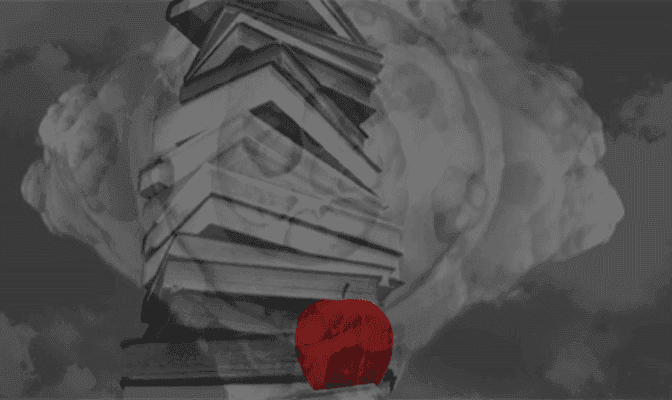Accueil>Nuclear Weapons Choices - Governing vulnerabilities between past and future

21.01.2025
Nuclear Weapons Choices - Governing vulnerabilities between past and future
À propos de cet événement
Le 21 janvier 2025 de 14:00 à 18:00
En ligne
All rounds include 15 minutes of Q&A
14h00-15h05 Assessing the Effects of Nuclearisation: Unknown and Understudied Aspects
Chair and discussant: Paul Edwards, co-director of the Stanford Existential Risks Initiative, Stanford University
Speaker: Benoît Pelopidas, associate professor, CERI Sciences Po
Description: This presentation addresses the questions of what the nuclearization of states and world politics produces and how one can assess it. It reassesses nuclear deterrence and non-proliferation but expands the conversation beyond those categories. It speaks to security studies, 20th century history, Anthropocene history, IR, history of democratisation and de-democratisation as well as environmental humanities.
It gives an overview of the questions that the NUCLEAR project has made researchable (assessing the role of factors beyond control in the avoidance of unwanted nuclear explosions so far, the effects of nuclearization of states on democracy, which medium best helps interlocutors overcome their disbelief in the possibility of nuclear catastrophe? what role do anticipations of environmental change play in nuclear weapons policymaking? how is unaccountability for foreseeable nuclear harm produced?), of the methods it proposes to do so, of the empirical evidence it has unearthed (interviews and primary sources worldwide, surveys of a representative sample of the European public in the two nuclear weapons states, the hosting states, Sweden and Poland, in October 2019 and 2024). It also offers a new framework to study how the scope of publicly available nuclear weapons choices is being decided and shows how the illusion of absence of alternatives to nuclear weapons policies is produced.
15h05-16h15 Democracy and Nuclear Weapons
Rotating chairs: Benoit Pelopidas, Sterre van Buuren, Thomas Fraise
Discussant: Alexander Sorg, postdoctoral Stanton Nuclear Security Research Fellow at Harvard University and former postdoctoral scholar with the ERC project NUCLEAR, CERI, Sciences Po.
Description: What is the effect of nuclear weapons on democracy? This question has long been understudied, but three different approaches document the negative impact nuclear weapons have on democracy. In terms of political theory, we show that these weapons are not democratically controllable because they create the possibility to wipe out one’s own democracy without popular consent or the possibility of reversal and because they necessarily affect people beyond the democracy’s borders. At the same time, the security implications of nuclear weapons create incentives to organize decision-making in a nondemocratic manner. A comparative approach of processes of acquisitions of nuclear weapons by democratic states also shows that they introduce far-reaching regimes of secrecy which reduce the level of public consultation. Finally, surveys in democratic nuclear-armed states show that nuclear policies enjoy little legitimacy among their citizens. Instead, they produce disempowerment.
15h05-15h20 Conceptual Incompatibilities of Democratic Control
Speaker: Sterre van Buuren, research assistant for the ERC project NUCLEAR, CERI Sciences Po
15h20-15h35 Nuclear Secrecy and De-Democratization
Speaker: Thomas Fraise, postdoctoral researcher at the University of Copenhagen, former doctoral student with the ERC project NUCLEAR
15h35-15h50 Survey Results - The Myth of Nuclear Consensus
Speakers: Benoît Pelopidas, associate professor, CERI Sciences Po and Alexander Sorg, postdoctoral researcher at Harvard University, former postdoctoral fellow with the ERC project NUCLEAR
16h15-16h30 Coffee break
16h30-17h55 The Constitutive Effect of Imagined Futures and Memories
Chair and discussant: Benoit Pelopidas, associate professor, CERI Sciences Po
16h30-17h00 - Nuclear Histories and Futures in the Middle East
Speaker: Hebatalla Taha, associate senior lecturer at Lund University, former postdoctoral fellow and research affiliate with the ERC project NUCLEAR
Description: Imagined futures and memories of the past have shaped the possibilities of the nuclear Middle East and of Egypt in particular. The memorialization of Hiroshima and Nagasaki, of the 1990s Arms Control and Regional Security talks and of Iraq’s “opaque proliferation” have played decisive roles in defining what appears as desirable and actionable nuclear futures for the Middle East. Shedding light on the struggles to produce and stabilize those timescapes and narratives thanks to primary sources in Arabic and Hebrew takes us beyond explanations in terms of “learning”, the obvious association of nuclear weapons with “deterrence” or material necessities of a nuclear-armed world.
17h00-17h30 - Ideologies and Narratives in a Nuclear World
Speaker: Kjølv Egeland, senior researcher at NORSAR, former postdoctoral fellow with the ERC project NUCLEAR
Description: The ideas of a “consensus” about the long-term goal of nuclear disarmament across all states, NATO as a “nuclear alliance”, “nuclear order” being desirable, the period of 1986 to 1995 being labelled as a “golden age of disarmament” play a crucial role in shaping our understandings of what is possible and what is desirable in nuclear weapons policies. They are crucial parts of an ideological struggle for the accepted narrative of the nuclear age in which contradiction and reversification are decisive resources. This research enables a productive debate about nuclear weapons policy which takes seriously the struggles over imagined futures as well as memories of the past and allows the building of a theory of nuclear disarmament.
17h55-18h10 - Closing remarks and presentation of new resources for researchers and educators: survey results, primary sources, video toolkits, visuals in French and English
Benoît Pelopidas, associate professor, CERI Sciences Po